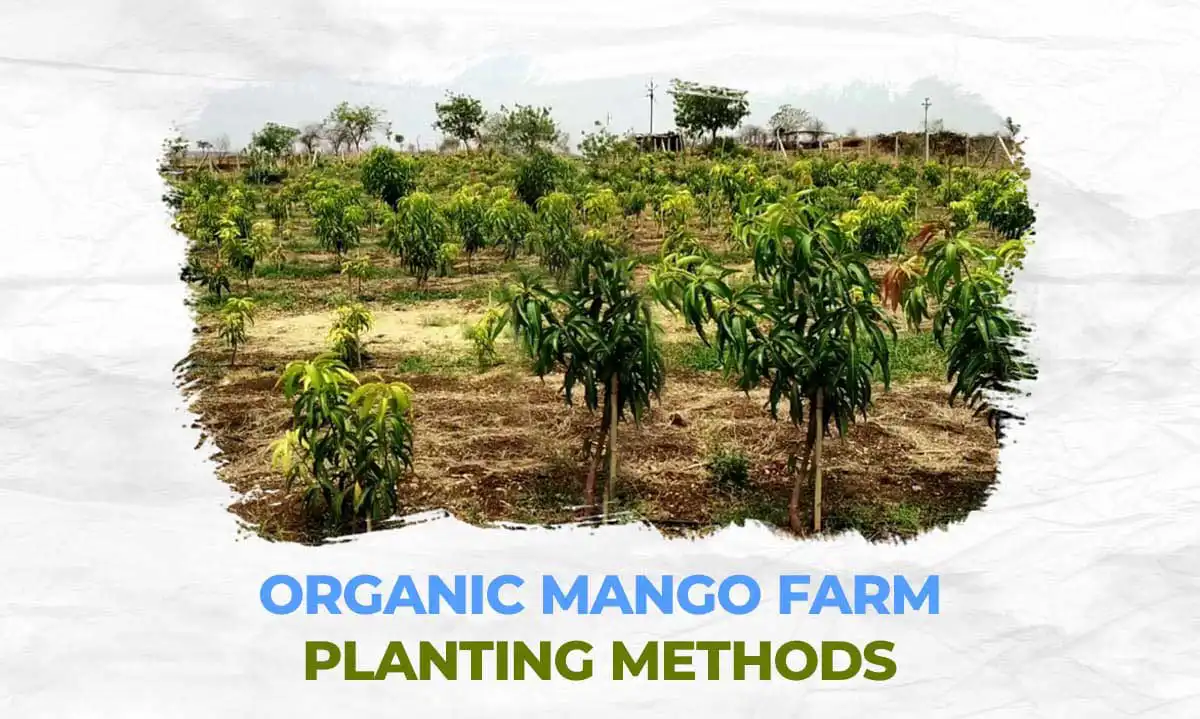How To Start Organic Mango Farm and Best Planting Methods

Cultivating mango, the king of fruits, can be considered a form of art! The organic way of mango farming is a holistic approach that offers ecological balance as this method uses natural inputs while minimizing the use of synthetic chemicals and external inputs. Also, these kinds of mango farms enhance the economic sustainability of the cultivator.
As we are heading towards a greener tomorrow, organic farming has become part and parcel of the cultivation process. Cultivating an organic mango farm needs to go through several essential processes.
Feasibility Study and Planning
Conducting thorough research on mango farming will give useful insights into what to do and what not to do.
It is mandatory to know all the organic cultivation practices to master the art of organic mango farming. mango farming. Assessing the market demand for organic mangoes in your region will give a heads-up from the business point of view. Determine the financial feasibility of starting an organic mango farm, including land costs, infrastructure expenses, and operational costs.Land Selection and Preparation:
To establish an organic mango farm for sale in Chennai, the major step is to select a suitable location that offers a favorable climate for mango cultivation. The success of your venture greatly depends on finding an area with the right amount of sunlight, rainfall, and temperature to support healthy mango trees. Once you've identified a promising spot, the next critical aspect is to ensure that the farmland is equipped with the appropriate soil conditions. The soil should be well-drained, allowing excess water to escape easily, as mango trees do not thrive in waterlogged conditions. Furthermore, the soil should be rich in nutrients, ensuring the trees receive the nourishment they need for optimal growth and fruit production. Next essential factor to keep in mind while preparing the organic mango farmland is to ensure that it is free from any chemical contamination. Toxic substances or residues from previous land use can negatively impact the health of the mango trees and the quality of the fruits they bear.Mango Variety Selection:
Choosing the right mango varieties will ensure successful cultivation on your mango farmland. Take into account the specific climate conditions of your region to identify mango cultivars that are well-suited for your area. Opt for organic mango varieties that exhibit disease-resistant traits as this will not only promote the health of your mango trees but also create better market demand for your produce. Consulting a few local agricultural experts will give you an upper hand to analyze the unique conditions of farmland.Planting:
When starting your mango farm, it's essential to begin with healthy mango seedlings or grafted trees sourced from a reputable nursery. Proper planting procedures are critical to ensure the success of your mango orchard. Prepare the planting holes or pits at the recommended spacing for the specific mango variety you've chosen. Handle the seedlings with care during the planting process to avoid damaging their delicate roots, which play a vital role in establishing strong, thriving trees.Organic Soil Management:
Prioritize the health of your soil by conducting soil tests to assess its fertility and nutrient content. Based on the soil test results, apply organic fertilizers like compost, manure, or other organic amendments to nourish the mango trees naturally. Implement organic soil improvement practices such as cover cropping and mulching to enhance soil health, retain moisture, and foster a conducive environment for beneficial soil organisms.Organic Pest and Disease Management:
Embrace integrated pest management (IPM) strategies to control pests and diseases organically. Utilize physical barriers, traps, beneficial insects, and natural predators to manage pest populations effectively without resorting to harmful chemicals. Employ cultural techniques like good sanitation, crop rotation, and the selection of disease-resistant mango varieties to reduce the occurrence of diseases and maintain a healthy orchard.Organic Weed Control:
Employ organic weed management methods to keep your mango farm weed-free. Mulching, hand weeding, or mechanical cultivation are effective ways to control weeds without using synthetic herbicides Mulching around the mango trees not only suppresses weed growth but also conserves soil moisture, enhancing the overall health of your mango trees.Irrigation:
To ensure the steady growth and productivity of your mango trees, provide them with regular irrigation. During critical growth stages, make sure the mango trees receive adequate water to support healthy development. Consider utilizing water-efficient irrigation methods such as drip irrigation or micro-sprinklers to minimize water wastage and promote sustainable water use on your farmland.Monitoring and Maintenance:
Regularly monitor the health and progress of your mango trees, assessing their growth, pest, and disease incidence, and nutrient status. Prune the mango trees as needed to maintain their shape, improve airflow, and facilitate sunlight penetration, which contributes to the overall vitality of the orchard. Stay updated with the latest organic farming practices by attending workshops and seeking guidance from local agricultural extension services. Remember that establishing an organic mango farm requires patience, commitment, and adherence to organic farming principles. While it may take several years for the mango trees to reach full productivity, following these steps and implementing organic practices will pave the way for a sustainable and environmentally-friendly organic mango farm on your farmland.conclusion
In conclusion, starting an organic mango farm is a rewarding endeavor that combines the art of cultivation with sustainable practices. By following the essential steps outlined above, such as conducting feasibility studies, selecting suitable lands, choosing the right mango varieties, and implementing organic soil and pest management techniques, you can establish a successfula mango farm . It is crucial to prioritize regular monitoring, maintenance, and continuous learning to ensure the long-term productivity and profitability of your mango farmland. By embracing organic farming principles, you can contribute to a greener future while reaping the economic and environmental benefits of owning a mango farm.
Latest Blog
JOIN OUR COMMUNITY !
Stay connected with Getfarms! Follow us on social media for the latest updates, exclusive offers, and a glimpse into the world of farmhouse living. Join our community today














